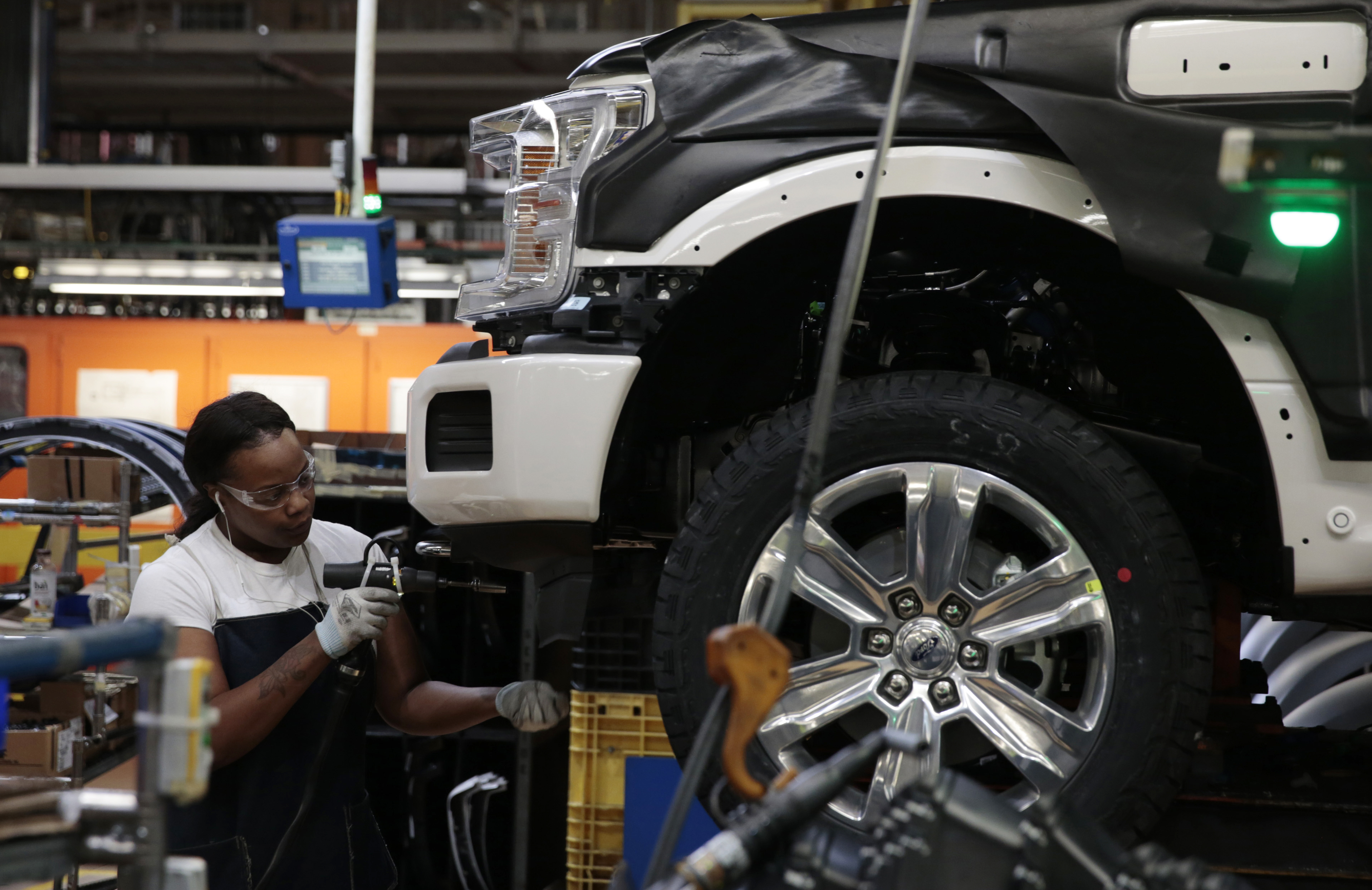US adds 250,000 jobs in October; unemployment rate steady
The US auto sector added 6,800 new workers in another sign of robust job creation just before key midterm elections (JEFF KOWALSKY)
Washington (AFP) – The US economic engine delivered another jolt of good news as Republicans battle to maintain control of Congress in next week’s midterm elections, churning out jobs and giving workers a fat pay bump, government data showed Friday.
The economy brushed past Hurricane Michael, adding 250,000 net new positions in October and handily overshooting forecasts, while salaries rose at the fastest pace in nearly a decade, the Labor Department said.
The unemployment rate held steady at 3.7 percent, a 48-year low, as more workers entered the labor force.
The robust economy has been a comfort to Republicans and President Donald Trump, who face a potential backlash from voters in Tuesday’s midterms. Polls show Democrats stand a good chance of retaking the House of Representatives, and possibly claiming some Senate seats, providing a greater check on Trump’s agenda.
“These are incredible numbers,” Trump said of the employment data on Twitter. “Keep it going. Vote Republican.”
The result was something of a surprise as some economists had expected the hurricane that made landfall on the Florida panhandle in the middle of the employment survey week to depress reports of hiring and worker pay.
Instead, officials said the storm, which disrupted business and life for millions, produced “no discernable effect” on the estimates.
October also marked the second month in a row that a hurricane had landed in the middle of the survey — meaning the figures could be subject to extra volatility, Ian Shepherdson of Pantheon Macroeconomics said.
Other data suggest hiring has indeed gathered pace, “but we won’t know if that’s really happening until we have another couple months’ data,” he said in a client note.
The jobs data showed companies kept right on hiring in healthcare, manufacturing, construction, transportation and warehousing, despite continued reports of a shortage of skilled labor.
But perhaps more significant, average hourly earnings, a closely-watched measure of worker pay, rose 0.2 percent from September, putting wages 3.1 percent above the year-ago level — the fastest gain since April 2009.
Sluggish worker pay gains despite the healthy jobs market had baffled economists, and the increase now is well above the 2.3 percent pace of consumer inflation.
– Supporting the Fed hawks –
Still, the rosy number benefited from a favorable comparison to October 2017, when many low-wage employees returned to work after being sideline by Hurricane Maria, bringing the average of hourly earnings back down, Shepherdson said.
And Diane Swonk of Grant Thornton noted that while wages are rising, benefits have not recovered, despite comments from employers that they are beefing up perks to attract and retain workers.
“Flexibility and ping-pong tables are not the same as permanent benefits such as health care, 401(k)s and childcare,” Swonk said in a research note.
The transportation equipment sector added 21,000 workers, within which the key auto industry accounted for 6,800 positions.
In another dose of good news, the American workforce grew by 711,000 people, lifting the labor force participation rate 0.2 percentage points to 62.9 percent, after holding stubbornly stable through the economic recovery.
The share of the population in the workforce also rose 0.2 to 60.6 percent.
The Federal Reserve is not expected to raise interest rates when it meets to consider monetary policy next week, but the latest jobs report is likely solidify the case for the rate hike expected in December.
Trump has expressed outrage at the Fed’s current tightening cycle, after three hikes this year.
But with unemployment flirting with historic lows and the economy juiced by tax cuts, stimulus and steady job creation, economists say policymakers will feel they have little choice but to continue raising rates to stave off inflation and prevent the economy from overheating.
And central bankers have made clear they expected to continue to gradually raise the benchmark lending rate for some time, including an expected three increases next year.
Oxford Economics said higher wages could spur inflation concerns among Fed policymakers.
“We think it is too early to sound the alarm as wage growth is expected to hover around three percent in the next few months,” the firm said in a research note.
“Faster wage growth along with a remarkably strong employment report in October will certainly lend some support to the hawks.”
Wall Street opened higher after the numbers were released but soon turned negative on investor disappointment with earnings from iPhone maker Apple.
Disclaimer: This story has not been edited by Siliconeer and is published from a syndicated feed. Siliconeer does not assume any liability for the above story. Validity of the above story is for 7 Days from original date of publishing. Content copyright AFP.


